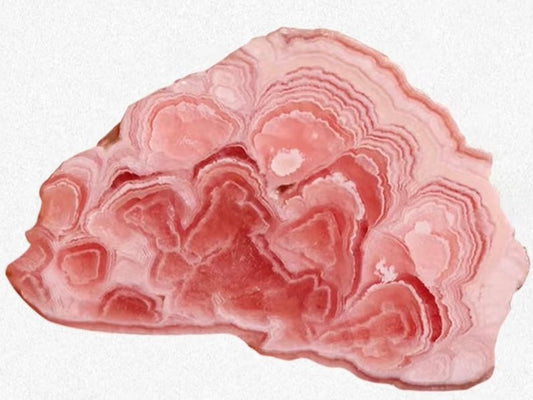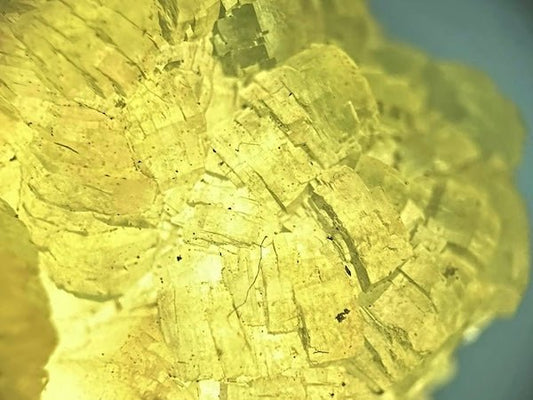Can Rose Quartz Go in Water? Safe Use & Cleansing Guide
By Elara QuinnShare

Inside this Article:
- Can Rose Quartz Go in Water? A Balanced Answer
- Understanding Rose Quartz: The Basics
- Is Rose Quartz Water Safe? Science & Spiritual Perspective
- Safe Water Practices with Rose Quartz
- How to Cleanse Rose Quartz Without Water
- Rose Quartz & Water Comparison Table
- 5 Common Mistakes to Avoid
- FAQ: Rose Quartz & Water
Can Rose Quartz Go in Water? A Balanced Answer
Rose Quartz can go in water — but caution is crucial. While its 7 ranking on the Mohs hardness scale suggests durability, prolonged exposure to water, especially those with added salts, chlorine, or minerals, can deteriorate its surface polish and internal structure. From a metaphysical viewpoint, too much water may also dilute its vibrational integrity.
Understanding Rose Quartz: The Basics
Rose quartz is a variety of quartz (SiO₂), ranking 7 on the Mohs hardness scale, making it relatively durable. However, its structure and polish require careful handling. Here’s what you need to know:
The Mohs Scale and Water Safety
What the Mohs Scale Means: Minerals are ranked 1–10 based on scratch resistance. Stones above 5–6 are generally water-safe.
Why 7 Isn’t Foolproof: While rose quartz is harder than many gems (e.g., opal or pearl), prolonged water exposure can still cause microfractures or strip its polish.
Check out our rose quartz tower here!
Why Prolonged Water Exposure Damages Rose Quartz: The Science Explained
Water Penetration and Structural Stress
Rose quartz, like all quartz varieties, has a crystalline structure with microscopic pores and fissures. When submerged for extended periods:
- Water Seepage: Water molecules gradually infiltrate these tiny gaps. Over time, this weakens the stone’s internal bonds.
- Expansion and Contraction: Temperature changes (e.g., moving from cold water to warm air) cause the stone to expand and contract. This repeated stress enlarges existing cracks, leading to visible fractures.
- Example: Think of ice repeatedly melting and refreezing in rock crevices—water’s subtle pressure can split even hard materials.
Chemical Reactions with Water Additives
Water alone isn’t the sole culprit—its composition plays a role:
- Chlorine (in pools/tubs): Reacts with the stone’s surface, dulling its polish and eroding delicate edges.
- Saltwater: Salt crystals form in crevices as water evaporates, creating abrasive particles that scratch the surface.
- Hard Water: Mineral deposits (e.g., calcium) can accumulate, leaving a filmy residue that obscures the gem’s natural luster.
Pro Tip: Avoid cleaning rose quartz with soap or detergents—these often contain alkalis or sulfates that strip its shine.
Polishing Vulnerabilities
Most rose quartz jewelry is polished to enhance its soft pink glow. However:
- Mechanical Erosion: Prolonged soaking softens the polish layer, making it prone to scratches from everyday wear.
- Abrasive Particles: Dirt or sand in water acts like sandpaper, wearing down the surface over time.
Did You Know? Unpolished rose quartz (raw stones) is slightly more resistant to water damage but still at risk of internal cracks.
Energy and Metaphysical Impacts
Beyond physical harm, crystal enthusiasts believe water exposure can weaken a rose quartz’s vibrational energy:
- Energy Drain: Water is thought to “wash away” the stone’s stored intentions or healing properties if overused.
- Indirect Cleansing: Many practitioners prefer moonlight or smoke cleansing to preserve both the stone’s structure and energetic integrity.
Chemical Composition
Rose quartz contains trace elements like titanium or manganese, which create its pink color. These aren’t water-soluble, but chlorine, salt, or harsh chemicals in pools or cleaning agents can react with the stone’s surface.
Is Rose Quartz Water Safe? Science & Spiritual Perspective
Scientific View: Structural Impact of Water
Despite its hardness, rose quartz is vulnerable to:
- Thermal Stress: Rapid temperature shifts (like rinsing with cold then warm water) cause expansion, risking micro-cracks.
- Chemical Reactions: Chlorine, salt, or hard water minerals dull its shine and damage the surface.
- Long-Term Soaking: Water seeps into pores, weakening structural integrity.
Spiritual View: Energetic Integrity
From a metaphysical lens:
- Over-cleansing: Frequent water baths may "wash away" intentional energy stored in the crystal.
- Energetic Dissipation: Practitioners prefer indirect methods like moonlight or selenite charging to maintain vibrational purity.
Safe Water Practices with Rose Quartz
- Quick rinse under lukewarm, distilled water (1–2 minutes max).
- Moon water baths (place in water overnight under moonlight, avoiding sun exposure).
- Energy amplification (brief pairing with Clear Quartz in water, under 15 minutes).
How to Cleanse Rose Quartz Without Water
- Dry polish with a microfiber cloth
- Smoke cleansing using sage or palo santo
- Sound healing using tuning forks or crystal bowls
- Selenite slab recharging
- Earth burial overnight (energetic reset)
👉 Explore more non-water cleansing methods
Rose Quartz & Water Comparison Table
| Water Type | Effect on Rose Quartz | Recommended? |
|---|---|---|
| Distilled Water (Short Soak) | Minimal impact, good for quick cleansing | ✔️ Yes |
| Saltwater | Corrosive, causes scratches and surface erosion | ❌ No |
| Chlorinated Water | May lead to chemical damage and dulling | ❌ No |
| Moon Water | Energetically safe, avoid sunlight | ✔️ Yes (short-term) |
5 Common Mistakes to Avoid
- Submerging for long periods (weakens structure)
- Using soaps or detergents (contains damaging chemicals)
- Wearing during hot showers or pool sessions
- Ignoring drying after rinsing (may cause residue build-up)
- Using ultrasonic or steam cleaners (vibrational damage)
FAQ: Rose Quartz & Water
Q: Can rose quartz go in saltwater?
A: No. Salt is abrasive and may cause micro-scratches and dullness.
Q: What’s the safest way to cleanse rose quartz?
A: Use a dry cloth, smoke cleansing, or a selenite slab for gentle energetic reset.
Q: Is raw rose quartz more water-resistant?
A: Slightly, due to the lack of polish. But internal cracks still pose risks.
Q: Can I charge it in moon water?
A: Yes, for short durations. Avoid direct sunlight afterward to preserve color.
Q: Can I wear rose quartz jewelry daily?
A: Absolutely—but remove before water-related activities to extend lifespan.






